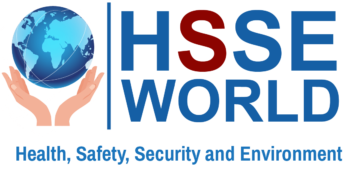Online Quiz: Top 13 Industrial Safety Objectives Questions
6 min readThe safety and productivity of people, machines, and processes is a key element of any sustainable business. Industrial safety systems have been used for many years to perform safety functions in the manufacturing industries. In most situations, safety is best achieved by inherently safe process design, Protection layer systems such as sensors, alarms, and personal protection equipment. These may be combined with protective systems to address any residual identified and counter risk. Protective systems can rely on different technologies such as chemical, mechanical, hydraulic, pneumatic, electrical, electronic, and programmable electronic. Companies and the operators who manage their production facilities demand the highest level of safety. This high level of safety helps protect personnel, the environment, and assets while maintaining maximum uptime and minimal operational disruption.
Take our quiz below for Top 13 Industrial Safety Objectives questions
Test your knowledge and answer the following Quizzes to learn Industrial Safety Importance, Objectives and Planning
What is Industrial Safety? :
“An industrial safety system is a countermeasure crucial in any hazardous plants such as oil and gas plants and nuclear plants. They are used to protect humans, industrial plants, and the environment in case of the process going beyond the allowed control margins.”
In simple words: “The management of all operations and procedures in an industry in order to protect its employees and assets by minimizing hazards, risks, accidents, and near misses” called the Industrial Safety.”
Why industrial safety is necessary?
The thousand of industrial accidents every year caused the realization of the importance of industrial safety with technological advancement in manufacturing. The dangers of human life are increasing day by day. In order to avoid accidents, employees must be aware of industrial safety principles & dangerous areas of that industry. The following are some reasons why Industrial safety is necessary:
- For the safety of people in their workplaces
- For protecting the environment against damage from industrial accidents
- For protecting businesses against serious losses from damage to plant and machinery For eliminating accidents causing work stoppage and production loss.
- For creating awareness of the good practices available for the delivery of effective safety instrumented systems
- For providing basic training in well-established techniques for engineering of safety systems
- For assisting engineers and technicians to support and participate in the safety systems activities at their work with good background knowledge of the subject
- For being aware of what can go wrong and how to avoid it
Because of the safety first rule, all industrial personals must be trained enough about safety aspects of man, machines, and material & other infrastructure facilities for avoiding minor or major accidents. Safety is the first requirement and every industrial employee must learn safety measures even before he starts working on a machine or equipment.
Objectives of Industrial Safety
A practical goal of industrial safety is to lighten the environmental impact on the manufacturing unit and each person and the role of the industrial safety professionals is to find leverage or opportunities for considerable improvement using practical effort. The objectives of industrial safety systems are as follows:
- Industrial safety is needed to check all the possible chances of accidents for preventing loss of life and permanent disability of any industrial employee, any damage to machine and material.
- It is needed to eliminate accidents causing work stoppage and production loss.
- It is needed to reduce workman’s compensation, insurance rate, and all the cost of accidents.
- It is needed to achieve better morale among industrial employees.
- It is needed to increase production means to a higher standard of living.
- It is needed to prevent accidents in the industry by reducing any hazards.
Planning of Industrial Safety
In industries, the no. of fire hazards, accidents, industrial disasters may be reduced through careful safety planning. All those unfortunate events can be avoided by effective planning for safety. Some important considerations for industrial safety are the following:
- Proper Plant Layout
- Proper Fire Prevention system
- Health & Hygiene
- Proper Safety Training
- Proper Alarms And warning systems
- Appropriate sensors and safety gears for employees
- Sufficient lighting in the work area as well as the pathways
- Cleanliness & dryness of shop floor
- Proper pressure gauges and other safety equipment
- Electrically insulation
- Proper signboards for safety instructions
COMMON SOURCES OF ACCIDENTS
Accidents take place unexpectedly causing injury & loss of men, machines, materials of that industry. Revolving, rotating, and moving parts of machines may be the sources of danger and require guarding for protection against accidents and Many such major sources are following.
- Low light machine operation areas.
- Revolving parts like pullies, flywheels, wheels, fans, gears, gear trains, gear wheels, etc.
- Intermittent feed mechanisms like tool feed of planer, table feed of a shaper, ram feed of power presses, and similar other applications.
- Revolving shafts, spindles, bars, mandrels, chucks, followers, and tools like drills, taps, reamers, milling cutters, and boring tools, etc.
- Rotating worms and spirals enclosed in casings, such as in conveyors and revolving cutting tools, like milling cutters, circular saw blade, saw band, circular shears, and grinding wheels, etc.
- Reciprocating tools and dies of power presses, spring hammer, drop hammers, and reciprocating presses, knives, and saw blade such bow saw, shearing and perforating machines and the cutting and trimming machine and power hacksaws, etc. Electrical wires, switches, motors & control panels.
- Oily & wet and dirty shop floor.
- Moving weights, such as in hydraulic accumulator or in slotting machines for counterbalance.
- Nips between racks and pinions of machine parts Nips between reciprocating parts and fixed components, such as between shaper table and the fixture mounted on it or a planer table and table reversing stops, etc.
- Nips between crank handle for machine controls and fixed parts.
- Projecting sharp edge or nips of belt and chain drives, via a belt, pulleys, chains sprockets, and belt fasteners, etc.
- Cutting edges of endless band cutting machines, woodworking, and log cutting metal find stone-cutting band saws, cloth-cutting band knives, etc.
- Pressure containers like pneumatic cylinders, boilers, etc.
ACCIDENTS AND THEIR TYPES
There are various types of common accidents as follows:
Near Accident: Accidents with no damage or injury are called near-accidents.
Trivial: An accident with very little damage is called trivial.
Minor Accident: It is an accident with damage and injury more than trivial.
Serious Accident: An accident with heavy damage and a lot of injuries is called Serious Accidents.
Fatal: It is an accident with very heavy damage.
Read More: E-Books: Accident Incident Prevention Techniques 2nd Edition
3 CAUSES OF ACCIDENTS
The accidents may take place due to the three following causes:
- Human Causes
- Mechanical Causes
- Environmental Causes
Human Causes
Very common human causes for accidents are as follows:
- Operating or working at an unsafe speed.
- Working on unsafe or dangerous equipment or machinery.
- Operating machines without knowledge, without safety precautions, or without safety devices.
- Working for a long duration of work. Use of improper tools.
- Working with mental worries, ignorance, carelessness, nervousness, dreaming, etc.
Mechanical Causes
Very common mechanical causes of accidents are as follows:
- Use of unguarded or improper guarded machines or equipment.
- The use of old, poorly maintained or unsafe equipment may result in accidents.
- Improper material handling system and improper plant layout.
- Not using safety devices such as helmets, goggles, gloves, masks, etc.
Environmental Causes
Very common mechanical causes of accidents are as follows:
- Working at improper temperature and humidity causes fatigue to the workers for chances of accidents.
- The presence of dust fumes and smoke in the working area.
- Poor housekeeping, congestion, blocked exits, bad plant layout, etc.
- Inadequate illumination.
- Improper ventilation may also lead to industrial accidents.
- Lack of cleanliness.
Read More Why Housekeeping Is an Important Part of Loading Dock Safety
Read More Topics
Top Health Risks Associated with Asbestos and Lead Exposure
In the pursuit of creating safer living environments, understanding the health risks associated with asbestos…
Online Color Prediction Games: Entertainment or Strategy?
In the vast and dynamic realm of online gaming, color prediction games have emerged as…
Dealing with PTSD: A Guide for Heavy Drinkers
PTSD and heavy drinking. Combine the two, and it sounds like the characteristic trait of…





1 thought on “Online Quiz: Top 13 Industrial Safety Objectives Questions”